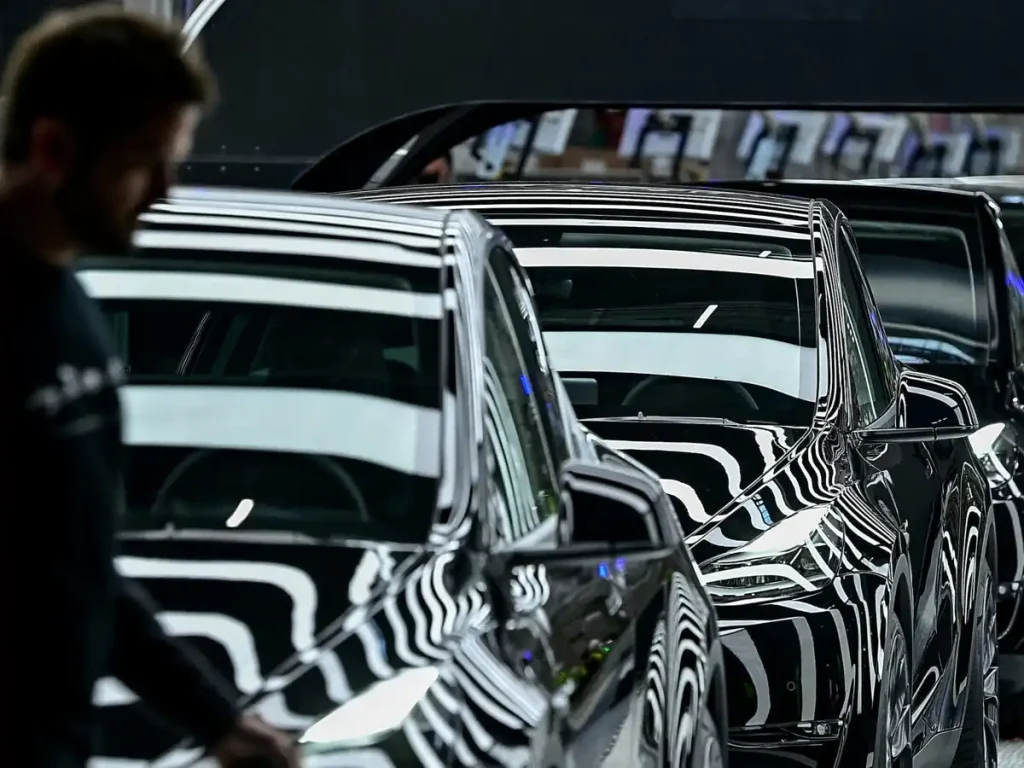Tesla’s presence in the European automotive market took a notable hit in March, with new car registrations dropping sharply by 28.2% compared to the same period last year. This decline came even as the broader electric vehicle (EV) segment in Europe witnessed impressive growth, signaling a possible shift in consumer sentiment and increased pressure from global competition—especially from Chinese automakers.
According to fresh figures released by the European Automobile Manufacturers Association (ACEA), battery electric vehicle (BEV) sales across the continent rose 23.6% in March. However, Tesla’s downturn marks its third consecutive month of falling sales in Europe, raising concerns about the brand’s ability to retain its dominance in a market that is rapidly evolving.
Electric Vehicles Surge, But Tesla Loses Ground
While the overall car market in Europe experienced a modest 2.8% increase in March sales, Tesla’s decline was especially stark. The brand’s share of the total market dropped to 2%—down from 2.9% a year earlier—indicating that even amid a booming EV landscape, Tesla is losing ground to both new entrants and established competitors.
Other automakers like Volkswagen and Renault posted solid gains, with sales climbing 10.3% and 13.0% respectively. Even as total EU car sales fell slightly by 0.2% year-on-year, demand for electrified vehicles remained strong. Battery electric, hybrid electric (HEV), and plug-in hybrid (PHEV) vehicle registrations rose by 17.1%, 23.9%, and 12.4% respectively. Collectively, these electrified models made up 59.2% of all passenger car sales in March, compared to just 49.1% a year ago.
Geopolitical Pressures and Consumer Perceptions Take a Toll
Several factors are contributing to Tesla’s European slump. For one, competition from Chinese EV manufacturers is becoming increasingly fierce. These companies are offering lower-cost alternatives that appeal to a broader segment of consumers, especially in a time of inflationary pressures and economic uncertainty.
In addition, some consumers in Europe are reportedly distancing themselves from Tesla due to CEO Elon Musk’s controversial public stances and political commentary. These perceptions, while difficult to quantify, are playing a role in shaping brand loyalty—particularly in markets with strong social values and a keen awareness of corporate responsibility.
Adding to the pressure are geopolitical factors. The reintroduction of aggressive U.S. trade policies under former President Donald Trump, including a 25% tariff on auto imports and a steep 145% duty on Chinese goods, has created uncertainty for automotive supply chains and reduced global growth expectations. These measures, combined with retaliatory tariffs from Beijing, have created a challenging climate for multinational automakers trying to navigate international markets.
Sales Figures Show Mixed Performance Across Europe
ACEA data shows that overall car sales in the EU, Britain, and the European Free Trade Association (EFTA) climbed to 1.42 million in March, reversing a two-month decline. The UK and Spain led the way with double-digit increases—12.4% and 23.2% respectively—while Italy also saw growth at 6.3%. However, two of Europe’s largest automotive markets, France and Germany, recorded declines of 14.5% and 3.9%.
Tesla’s sales drop stands out in contrast to these national trends, highlighting a deeper challenge for the company that extends beyond just fluctuating demand.
Changing Landscape in the EV Sector
Analysts point to several structural changes reshaping the electric vehicle market in Europe. New EU emissions regulations have spurred automakers to accelerate the rollout of more affordable EVs. As a result, consumers now have more options than ever, often at lower price points than Tesla’s premium models.
Interestingly, while EV momentum remains strong, the European Union has recently floated proposals to relax some of its upcoming emissions targets. Such a move could slightly ease the pressure on automakers in the short term, though the broader push toward electrification remains on track.
Looking Ahead: Tesla’s Road Gets Bumpier
Tesla’s drop in European sales serves as a warning sign that the company must adapt quickly if it wants to maintain its leadership in an increasingly crowded field. With rising Chinese competition, consumer sentiment shifting, and geopolitical uncertainty casting a long shadow, the brand faces multiple headwinds.
To regain momentum, Tesla may need to reconsider its pricing strategy, expand its model lineup with more affordable vehicles, and rebuild its public image—particularly in markets where political views can influence buying behavior.
At the same time, the company must continue to innovate and scale efficiently, even as trade tensions and policy changes add complexity to global operations.
In the fast-evolving world of electric mobility, the landscape is no longer dominated by a single player. As more automakers enter the space with competitive offerings, Tesla’s next moves could determine whether it continues to lead—or gets left behind.



